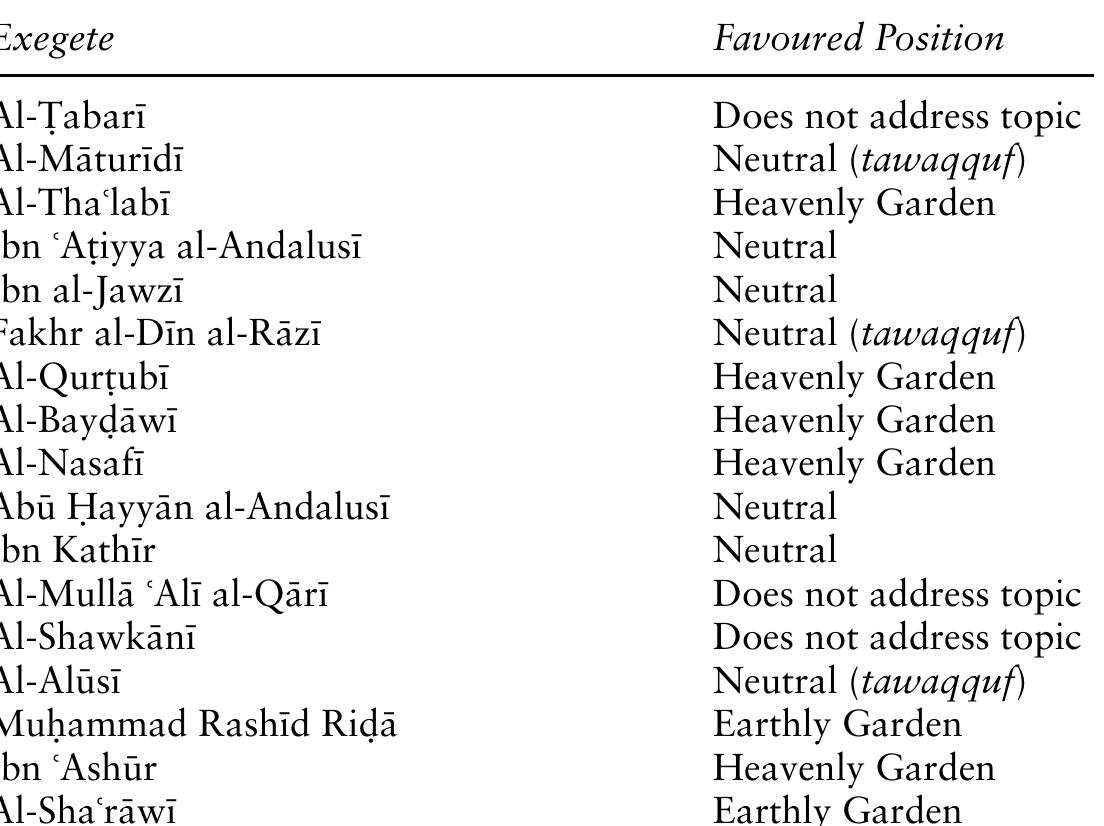Figure 2 – uploaded by Shoaib A . Malik

Table 2 4 Summary of Exegetes’ Opinions for the Garden’s Location Al-Tabari does not discuss the Garden’s location. This is significant since al-Tabari’s work is an ambitious endeavour to collect and examine the state- ments and discussions of earlier Muslims relevant to each verse. This indi- cates the issue was not yet widespread at al-Tabari’s time, a conclusion strengthened by the fact that the topic is not addressed in two other impor- tant early works, Tafsir ‘Abd al-Razzdq (d. 211/827) and Tafsir Ibn Abi Hatim al-Razi (d. 327/938).”? These early proto-tafsir works compile reports from the Companions, Successors and others, arranged by verse with no additional commentary. Together with al-Tabari’s work, they present a nearly exhaustive survey of the opinions in circulation at this early point in Muslim history. The conclusion is also strengthened by the fact that the ear- liest known advocates of an earthly Garden were two Mutazili scholars, Abi al-Qasim al-Balkhi (d. 319/931) and Aba Muslim al-Isfahani (d. 322/934), who passed away a number of years after al-Tabari. Al-Maturidi, who is only slightly later, mentions the controversy. All this suggests that the Garden’s location was a non-issue for the earliest Muslims and emerged as an issue in the early 300s/900s.



